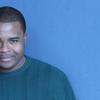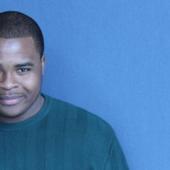The “N” word: A tough mind and a tender heart
Editorial

MLK said we needed a tough mind and a tender heart. Sha Cage used both in her recent production of N.I.G.G.E.R. at Intermedia Arts. The subject, the artists, and the audience created a dynamic evening. Sha took us on a wild history ride with a mix of puppetry, monologues, dance, music, and community interviews. It was a thorough and exacting examination of the word “nigger.”
Each show included a facilitated post-play discussion, and weeks later I'm still thinking about some of the comments. On both nights I attended, most of the audience stayed to participate. Post-play, you could sense a whirlwind of feelings in the room including shock, relief, joy, and pain. We had all just experienced something that was touching each of us in its own way. In those discussions with an amazing mix of races, ages and genders, we shared our feelings and spoke to one another. It is rare that I feel so in sync with a group of strangers, but it made sense. We had all been through the fire, a fire sparked by the word “nigger.” The “N” word stirs up some immediate emotions in people. If you’re American and know a little history, regardless of race, you have some feelings about the word.
That word is history in a moment, history in a breath, history in six (five for some of us) letters. It is a charged word. Many African-Americans, including my own family members and friends, feel they have reclaimed it. But can you reclaim something you never owned? Sha asked that question and shaped a space for some answers. The creation of that sharing space is exactly what allowed N.I.G.G.E.R. to excel. Using the “N” word on stage requires some deep thought and a willingness to talk about why. Why is the playwright using it? Is it necessary and integral to the story? Is it just for shock value? Who is saying it? To whom are they saying it?
These questions need to be addressed in the production meeting, in the rehearsal room, in the program, and with the audience. It is a matter of being true to the bodies on stage, being true to the history that those bodies tell. An audience will react differently to hearing a white male or black female say “nigger.” Theater makers need to be aware of that and be deliberate in its use. The word’s imbued power makes it a potent instrument in storytelling. And I know we know this, but a reminder: with a great power comes a great responsibility.
An artist has got to know why they are using it. Only then can they truly deliver the word with all its complexities. Only then can an audience really examine the “why” behind the word. Maybe the play is exposing a time when the word wasn’t restricted to the bad, evil, white, slave-owning racist, but accepted as the norm. A time, not so long ago, when a white child had no other definition for the darker skinned child across the playground. Or maybe the play is tapping into the confusion the word causes us now, especially with an African-American president.
Hearing the word in an audience can be an awkward, uncomfortable experience. I’ve felt heads turning, seeking out the people of color, attempting to gauge our reaction. I’ve also sensed a complete shutdown as people withdraw into themselves. A lot of times they have not been prepared. Maybe they have been warned about strong language, but have they been informed about the why? So they hear it, respond to it, and then leave it. The experience of that word should walk out the door with an audience; they should wrestle with it in the car and beyond. Sha hit us with lightning and allowed us to sit with it, think about it, and digest it. N.I.G.G.E.R. was more than a theatrical event; it was a performance that allowed the audience to encounter and to testify.
Theater alters the way we hear and interact with words. For instance, in the right setting (context), the sound of the right characters (people) saying, “Nigga please,” or “Myyyy nigga” reminds me of my childhood. It stirs up memories of home. I first heard that word surrounded by loved ones. That word was a bond, a shared connection, between family members. It was a reclaimed word with no dangerous undertones. So hearing it from their lips, my elders’ lips, in our places made sense.
Now, they knew the history of the word. My father’s family moved “up North” to escape the outright, in-your-face racism of the South. They arrived in Detroit to experience the race riots that ravished the city in the late ‘60s. They are from a generation who were called “nigger” in unimaginable, explosive encounters. But somehow, they took it in, made it their own, and molded it into something else. They changed it, took the teeth from it, so it wouldn’t hurt so much. They were able to blunt the edge when using it among each other, but they were not immune.
As Sha taught us, “The soup don’t taste the same in everybody’s mouth.” For my father’s family, that word could still stab when derisively used by someone outside the culture, and sometimes within. It could still reek of hatred. Today not much has changed. New generations have tried to understand the intricacies of the word. Some still hope to “own” it, others want it to be buried and hidden away.
Look at the recent removal of “nigger” from some editions of The Adventures of Huckleberry Finn. That removal is not about the sensitivity of students, but a desire to ease the burden on instructors. The deletion frees instructors from the responsibility to engage with the word. To have a conversation, or a lesson, or even a week dedicated to the word. Eliminating it from the book is an attempt to cleanse history, to erase what we know to be true about the word nigger: It is both maliciously and sweetly used. It is uncomfortable. It is offensive. It does hurt. It is confusing, but we shouldn’t try to forget it. We have got to meet the word head on.
Sha did that. She was the hammer and the nail. She invited the audience to experience that electric word with all of its complications, hurts and memories. Theater allows that. As artists we can frame an issue and give it some context, show you how one single word could lead to a stronger familial bond and at the same time lead to “strange fruit swinging in the southern breeze.”
“Nigger” is a complex word and we are a complex people. In this supposedly post-racial society, we owe it to each other to take time to engage with the “N” word. We will never agree on when it is okay to use. Who should use it? How should they use it? Why are they using it? But we can talk about it. We just need to bring a critical mind, an open heart, and a willingness to hear each other. Sha showed us a few weeks ago that artists can be at the forefront of these conversations. I challenge us all to keep unpacking with tough minds and tender hearts.




